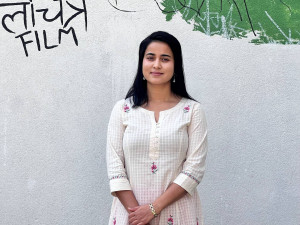Culture & Lifestyle
What it means to grow up
This involves letting go of our past selves and accepting them—as well as holding ourselves accountable for our actions.
Dipesh Tandukar
One thing I have been thinking about recently is how we are all growing up, albeit at different paces and places. This is such a simple observation; everyone knows this, yet it feels so profound. Surprisingly, this hasn’t really been talked about much, possibly because of how obvious it is.
From infancy to adulthood, we follow a natural progression—a baby becomes an adolescent and, eventually, an adult. We are all familiar with this cycle, but what does it mean to be a grown-up? This question has been on my mind for a while, and I believe everyone will have a different view on it.
One thing we can all agree on is that there is more to growing up than simply ageing.
When I was younger, I thought growing up simply meant getting older. However, I now understand that it’s more complex than that. The challenges associated with growing up and maintaining good mental health are intricate. During early childhood, things are straightforward—we learn about forming bonds and trust, and choices are made for us by parents and caregivers. As we age, though, we gradually find ourselves in situations where we must make decisions with lasting impacts on our lives.
The fine line between clinging to the past and maturing lies in the difficult decisions we must make. Growing older means facing situations we may not prefer. While we might be inclined to stick with the easy and simple choices of childhood—like playing games instead of studying, indulging in junk food or skipping school—there comes a point where we realise that consistently opting for the easy route isn’t beneficial to us in the long run. We must make a choice.
We can’t always pick the easy options; sometimes, we must make a choice and tackle hard decisions. This includes completing work on time, going to work even when we don’t want to, forgiving those who have wronged us (and forgiving ourselves), and planning for the future and taking action based on it. These tasks require us to reflect on the actions we’re willing to take and the consequences they carry. This is where many of us falter in our journey of growing up.
Growing up involves letting go of our past selves and accepting them. It’s about recognising that there were times when making easy choices was appropriate, but as we move forward, we must also embrace the challenge of making difficult decisions we may not want to. This includes taking responsibility for tasks we’ve been avoiding, treating everyone equally and not judging based on rumours. Growing up means holding oneself accountable for actions, avoiding blaming others, working towards a better future, and appreciating life as it is. Understanding these aspects marks the beginning of our journey into maturity.
Many people dwell on the negative memories of their lives, often regretting the past and blaming themselves and others for failures. Moving on is challenging because it requires accepting what has happened and having the ability to see beyond what happened in the past, acknowledging that even unpleasant events were necessary in shaping who we have become.
The crucial lesson in growing up is the simple act of acceptance. Our past has been shaped by societal expectations, academic pressures, family and work demands, the environment we grew up in, the challenges and heartbreaks we faced, and the validation we sought from peers. These factors continue to influence our thoughts, behaviours and mental health today. However, what truly matters is the person we are right now.
It’s about accepting what we have been through and deciding whether to take positive action or dwell on the unfair situations we faced in the past. When we understand this difference, that is when we actually grow up and mature.




 9.12°C Kathmandu
9.12°C Kathmandu















